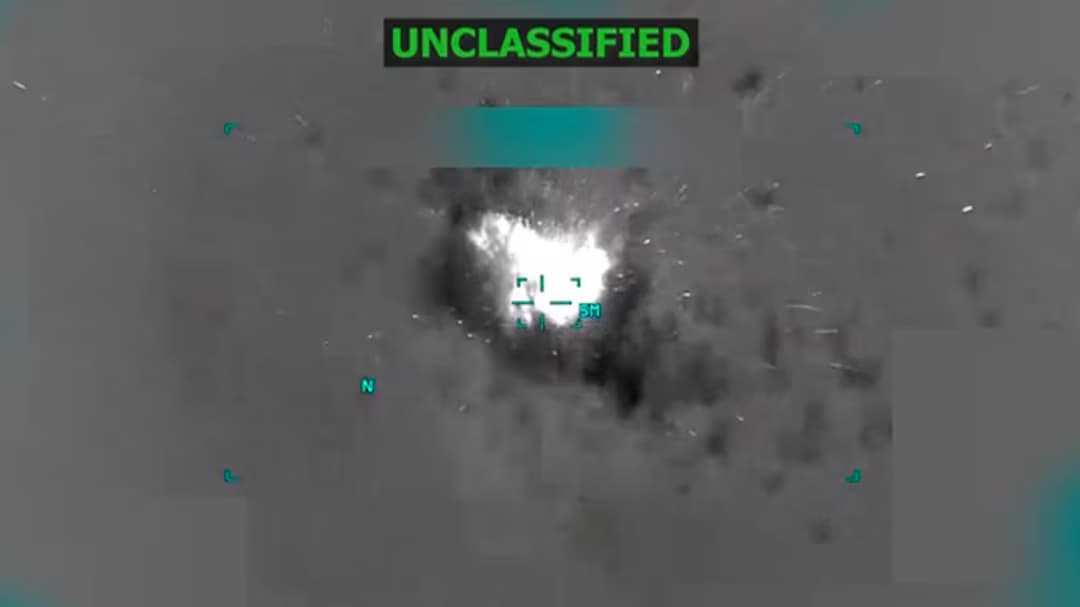We're loading the full news article for you. This includes the article content, images, author information, and related articles.
The United States has conducted its fifth deadly strike on a vessel in the Caribbean, killing six people, as Washington intensifies its controversial campaign against alleged drug traffickers, raising concerns about international law and regional stability.

The United States military on Tuesday, October 14, 2025, struck another vessel off the coast of Venezuela, resulting in the deaths of six people. U.S. President Donald Trump announced the strike on Truth Social, stating the vessel belonged to "narcoterrorists" and was "trafficking narcotics" along a known smuggling route. He also released aerial surveillance video showing a small boat being hit by a missile and exploding.
This incident marks the fifth such strike by the Trump administration on a boat accused of drug trafficking in international waters since September 2025. In total, these operations have reportedly killed 27 people, though the U.S. has not provided specific evidence or details regarding the identities of the vessels or those on board. The U.S. government maintains that no American military personnel were injured in the latest strike.
The recent strikes are part of an escalated U.S. counter-narcotics strategy in the Caribbean, which began in late August 2025. President Trump has directed the U.S. Armed Forces to use military force against certain Latin American drug cartels, labelling them as "narcoterrorists." This militarisation of the war on drugs dates back to 1989, with increased involvement of the Department of Defense in interdiction efforts.
In January 2025, President Trump signed Executive Order 14157, directing the U.S. State Department to designate certain Western Hemisphere drug cartels as Foreign Terrorist Organizations and Specially Designated Global Terrorists. Subsequently, groups like Venezuela's Tren de Aragua and MS-13 were designated as foreign terrorist organisations in February, cited as posing a "national-security threat beyond that posed by traditional organized crime."
The Trump administration formally declared to Congress on October 1, 2025, that the U.S. was in a "non-international armed conflict" with "unlawful combatants" regarding drug cartels operating in the Caribbean. This declaration asserts the administration's legal authority to use lethal force against suspected drug traffickers, treating them as enemy combatants.
However, this approach has drawn criticism from legal experts and some members of the U.S. Congress. Critics argue that the strikes may violate international maritime and human rights law, with some characterising them as "extrajudicial killings." International law generally prohibits the use of force by one state against another, except in cases of self-defence or when authorised by the UN Security Council. Legal scholars contend that drug trafficking, even transnational, does not typically constitute an "armed attack" under customary international law to justify such military responses.
The U.S. Coast Guard's authority in maritime drug interdictions is primarily derived from the Maritime Drug Law Enforcement Act (MDLEA) of 1986, which grants it jurisdiction to board, search, and seize vessels suspected of drug trafficking in international waters, especially if the flag nation consents or waives objection. The Drug Trafficking Vessel Interdiction Act of 2008 further outlawed the operation of unregistered submersibles and semi-submersibles in international waters with the intent to evade detection.
Venezuelan President Nicolás Maduro has strongly condemned the U.S. strikes, accusing Washington of "extrajudicial murder" and threatening regime change. He has described the U.S. naval buildup in the Caribbean as an "absolutely criminal and bloody threat" and has mobilised the Bolivarian Militia for military exercises. Venezuela has also formally written to the UN Security Council, describing the strikes as violations of international law.
On the other hand, U.S. officials, including Defense Secretary Pete Hegseth, have defended the operations as necessary to combat drug cartels that pose a national security threat. Secretary Hegseth recently announced the creation of a new "counter-narcotics Joint Task Force" to "crush the cartels."
Some members of the U.S. Congress, both Republican and Democrat, have expressed frustration over the lack of information and legal justification for the strikes. A Senate resolution to bar the administration from conducting such strikes without congressional authorisation failed to pass last week.
The escalating military actions carry significant risks of further destabilising the region and increasing tensions between the U.S. and Venezuela. Some analysts suggest the U.S. deployment is disproportionate to a counter-narcotics mission and could be interpreted as a move towards regime change in Venezuela. The unilateral use of force in international waters also risks undermining international law and global cooperation on drug interdiction.
A key area of uncertainty remains the specific evidence linking the targeted vessels and individuals to drug trafficking and designated terrorist networks. The U.S. administration has not publicly provided this underlying evidence to lawmakers or the public. The nationality of those killed in the strikes has also not been consistently specified by the U.S. Furthermore, the precise locations of all strikes, and whether they occurred in international waters or closer to Venezuelan territorial zones, remain a point of contention.
Observers will be closely watching for any further escalation of military actions by the U.S. in the Caribbean and the response from Venezuela and other regional actors. The ongoing debate within the U.S. Congress regarding the legal justification and oversight of these strikes will also be a critical area to monitor. The international community's reaction, particularly from the United Nations and other multilateral bodies, will be crucial in shaping the diplomatic landscape surrounding these controversial operations.
Keep the conversation in one place—threads here stay linked to the story and in the forums.
Sign in to start a discussion
Start a conversation about this story and keep it linked here.
Other hot threads
E-sports and Gaming Community in Kenya
Active 9 months ago
The Role of Technology in Modern Agriculture (AgriTech)
Active 9 months ago
Popular Recreational Activities Across Counties
Active 9 months ago
Investing in Youth Sports Development Programs
Active 9 months ago